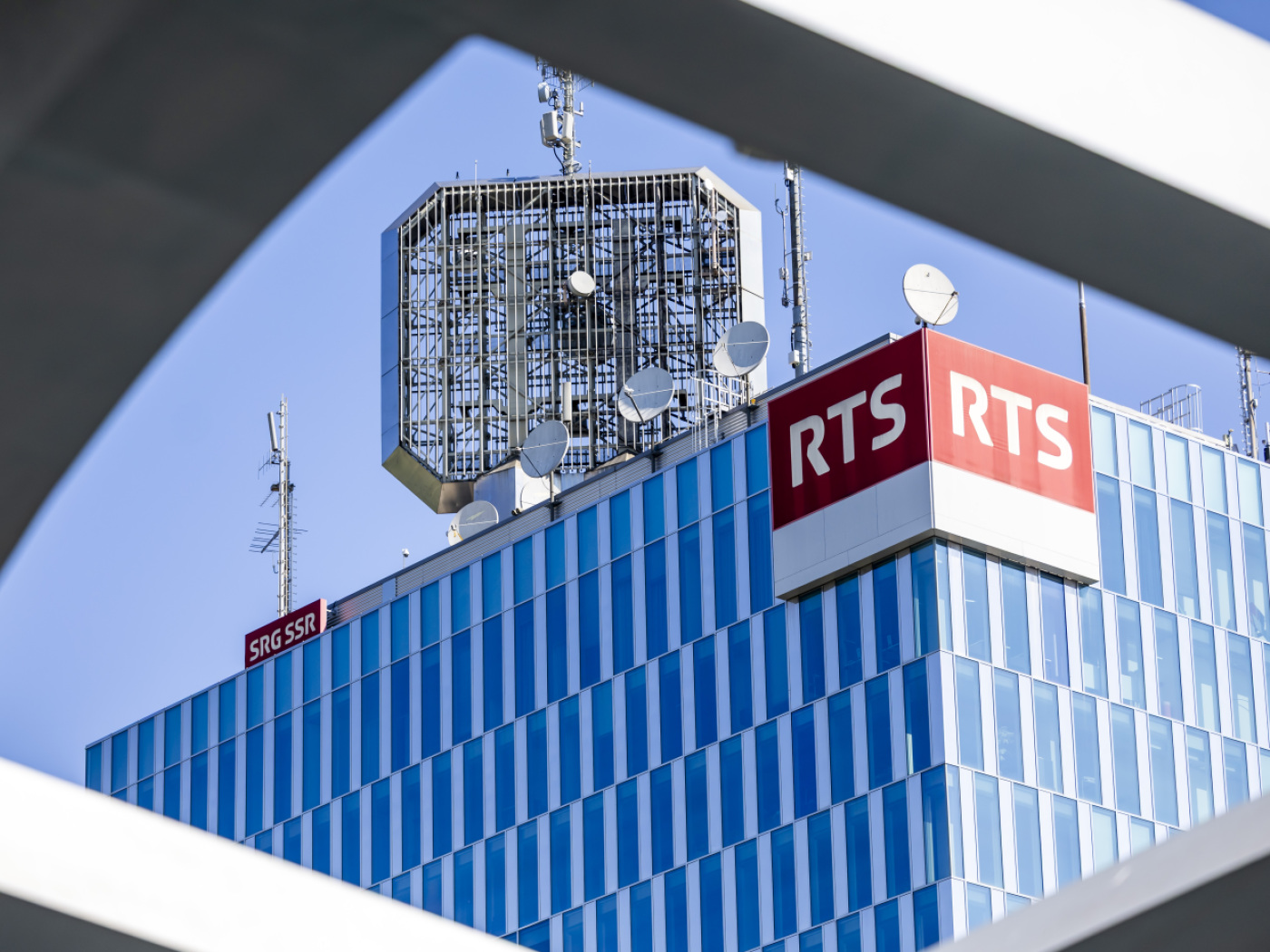
Poll shows majority of Swiss voters back cut to radio and TV licence fee

A Tamedia poll published in Le Matin Dimanche and the SonntagsZeitung shows that 53% of Swiss voters support an initiative by the right-wing Swiss People’s Party and the Young Radical-Liberals to reduce the annual radio and television licence fee from CHF335 ($419) to CHF200. The proposal is set to go to a nationwide vote in 2026.
+ Get the most important news from Switzerland in your inbox
A Tamedia survey carried out between September 18 and 26, 2025 among 14,775 respondents shows that most Swiss voters support the initiative to lower the radio and television licence fee, known as the Swiss Broadcasting Corporation (SBC) initiative or halving initiative. The SBC is SWI swissinfo.ch’s parent company.
In response to the question, “How will you vote on the initiative to reduce the radio and television licence fee from CHF335 to CHF200 per household?”, 53% of respondents said they would vote “yes” or “mostly yes”. Meanwhile, 44% were opposed, and 3% remained undecided. The survey was conducted by 20 Minuten and Tamedia in collaboration with LeeWas.
Left-right divide
While the survey found no significant difference between men and women, it revealed a clear split along political lines. Supporters of the Swiss People’s Party overwhelmingly backed their party’s initiative, with 86% in favour. Radical-Liberal voters also showed support, with 63% in favour. On the left, opposition was strong: 75% of Social Democrat voters rejected the proposal, along with 65% of Greens and 74% of Liberal Green supporters. Voters from the Centre party were more divided, with 56% against the initiative.
The survey also revealed differences in opinion across age groups. Only those aged 65 and over were opposed to the initiative. The poll has a margin of error of +/- 2%.
If voters back the initiative, the SBC would face a significantly reduced budget
If the initiative is approved, the SBC’s annual budget would be halved from CHF1.3 billion to CHF630 million. Supporters of the proposal say it’s time to refocus the public broadcaster on its core mission and modernise a funding model they argue is outdated in the digital age.
The Swiss government is already planning to gradually reduce the licence fee to CHF300 by 2029. As Le Matin Dimanche reports, the indirect counter-proposal would lead to a smaller cut, but would still mean less revenue for the SBC.
The licence fee is still the main source of income for the SBC, which employs around 7,100 staff and finances 17 radio stations, seven TV channels and a broad range of news, cultural and sports coverage.
Government and Parliament oppose fee cut
Despite majority support in recent polls, the Federal Council, Switzerland’s executive body, and Parliament have come out against further cuts to the radio and television licence fee. Parliament has recommended rejecting the “CHF200 is enough” initiative outright, without putting forward a counter-proposal.
Last year, the Federal Council made concessions to the initiative’s backers by deciding to reduce the annual household licence fee to CHF300 through a government ordinance. Many businesses will also be exempt from paying the fee.
Communications Minister Albert Rösti has warned that the SBC’s current offering is financially unviable for private broadcasters in Switzerland’s smaller language regions. He argued that if the initiative is approved, centralising SBC operations would be unavoidable, with no more than two main centres remaining. This, he said, is a key reason behind the Federal Council’s opposition to the proposal.
The SBC is already implementing a savings plan and expects to cut costs by around CHF270 million by 2029 – roughly 17% of its current financial framework.
Translated from French with DeepL/sp
We select the most relevant news for an international audience and use automatic translation tools to translate them into English. A journalist then reviews the translation for clarity and accuracy before publication.
Providing you with automatically translated news gives us the time to write more in-depth articles. The news stories we select have been written and carefully fact-checked by an external editorial team from news agencies such as Bloomberg or Keystone.
If you have any questions about how we work, write to us at english@swissinfo.ch.

In compliance with the JTI standards
More: SWI swissinfo.ch certified by the Journalism Trust Initiative

























You can find an overview of ongoing debates with our journalists here . Please join us!
If you want to start a conversation about a topic raised in this article or want to report factual errors, email us at english@swissinfo.ch.